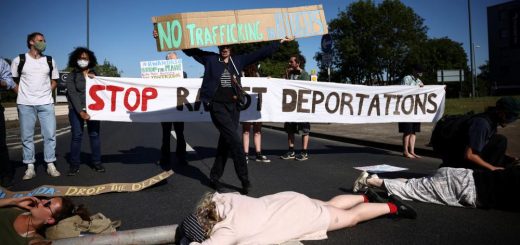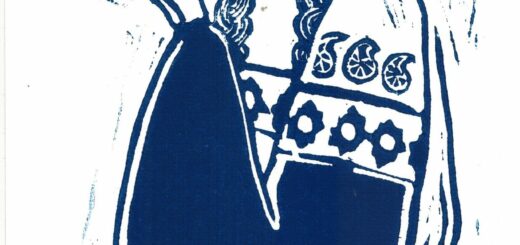Thinking about the Sahel
Het is als een open deur intrappen: de instabiliteit in de hele Sahel, van de Atlantische Oceaan in het westen tot de Rode Zee in het oosten, is de afgelopen maanden alleen maar toegenomen. Vooral Burkina Faso, Mali en Niger dreigen weg te zinken in armoede, geweld en chaos.
De – schaarse – berichtgeving over wat er écht aan de hand is, gaat alle kanten uit. Enerzijds zijn er de vreugdekreten van de ‘neosoevereinisten’ om de herwonnen onafhankelijkheid van de Sahellanden die eindelijk hebben afgerekend met de vermaledijde ex-kolonisator Frankrijk en zijn militaire interventies en neokoloniale belangen, maar anderzijds is de veiligheidssituatie er nog nooit zo slecht geweest met vrijwel dagelijkse aanvallen van jihadistische gewapende groepen, terwijl de reguliere legers ook niet vrijuit gaan bij zware mensenrechtenschendingen.
Ook de samenwerking met de ‘nieuwe militaire partner’ Rusland heeft vooralsnog niet de verhoopte resultaten opgeleverd die de militaire machthebbers voor ogen hadden. Van een herstel van een min of meer democratisch bestuur is zelfs helemaal geen sprake meer. De militaire junta’s zijn duidelijk niet van plan om snel te vertrekken, al zou de toenemende ontevredenheid onder de bevolking hen daartoe wel eens kunnen dwingen.
De Nederlandse journalist en West-Afrikakenner, Bram Posthumus, schreef de afgelopen zomer een zeer lezenswaardige zevendelige blog over de Sahel, een regio die hij vanuit zijn jarenlange ervaring als correspondent bijzonder goed kent en waar hij nog vele contacten heeft. Wij brengen zijn bijdragen in vier afleveringen in de CIMIC-Nieuwsbrieven tot december.
Jan Van Criekinge
Thinking about the Sahel –1
After a good number of years in two Sahel capitals (Ouagadougou and Bamako) and visits, sometimes long ones, to other cities and towns (Ségou, Timbuktu, Bobo Dioulasso, Koutiala, Koudougou, Sikasso and so on), I have now as some of you may know relocated to Abidjan. In my mental and physical luggage: memories, stacks of books and articles about the region and the results of the countless exchanges with people living there, many among them obviously better in the know about the zone than me.
And so, I have been thinking a lot about some kind of final Sahel blog, which almost feels like a farewell. That would inevitably become a book, and I have no intention of adding a book when there is so much already available. Instead, I am putting together just a few thoughts on some elements that may not have received the attention they deserve. So hopefully you and I will be treading on some unexpected and perhaps unfamiliar ground.
Bram Posthumus, July 2024

Living on the margins
About six years ago, I interviewed a prominent Burkinabè human rights activist. During that conversation he made a remark that has stuck with me ever since. It serves as a reminder of the fundamental cause of what’s been ailing the Sahel. He said this: “You know, the security for one villa of one minister here in the city (he meant the capital, Ouagadougou) requires the presence of the same number of police officers as the security of a rural village with ten thousand souls.”

If you are a young man living in such an unprotected Sahelian village your economic prospects on a scale of 1 to 10 are roughly nil. If someone then comes along and tells you that you can work for him, but that you have to be invading villages, stealing cattle, robbing village stores and killing everyone who stands in your way ánd get paid for this, what do you think will happen?
A proportion of those young men (and the occasional woman) will say: “Yup. I’ll do that.” That’s how the fake revolutionary Charles Taylor operated in Liberia in the 1990s – and that’s how fake Islamic jihad recruiters work today, often in active collaboration with government officials – covert and discreet, of course.
Armed extremist groups have several ways to win communities to their cause. They offer protection and sure enough, the communities thus targeted do what everyone else does: hedge and calculate. Of course, they know it’s a racket and a terrible one at that, but poor vulnerable communities also know they have few if any options. This is pragmatism writ large.

After West Africa’s rainforest wars of the 1990s I interviewed and spoke with young men who had been involved in Liberia’s most uncivil gang clashes, supposedly fought in the name of some ‘revolution’ that obviously never happened. Among the many things they said, two stood out. First, that they were recruited under false pretences and second that almost all of these young men regretted ever having taken part.
In two quotes: “They lied to us.” “We spoil.” The quick and efficient Liberian English way to say “we made a mess.”
Similar things are happening in the Sahel today. Replace the word ‘Revolution’ with ‘Islam’ and the similarities become glaring. This time, the Charles Taylors and Prince Johnsons and George Boleys and all the other war criminals don white garbs and pious expressions, as they tell these young men that they will be promoting the correct form of Islam, which obviously means that they must forget the faith they were taught at home and the Koranic school in the village.
Taylor and his ilk plied the boys with amphetamines to make them lose fear and conscience and perhaps fanatical religion is an equally powerful drug.
The results are the same: dead people, traumatised women, men and children, burnt villages, empty houses, stolen possessions and a colossal number of people on the run – millions in coastal West Africa, as far as Ghana and Nigeria; two-and-a-half million today in Burkina Faso alone at last count, tens of thousands in Mali.

Let us be very clear: these are the results of terrible acts committed by violent extremist groups. But they are not the only ones. One of the bitterest complaints people have concerns violent actions, past and present, by agents of the State. Across the Sahel, it is the predatory state that acts as the best recruitment tool a ‘jihadist’ outfit could wish for.
Let’s also be very clear about another thing: people and what is being done to them are not the reasons why the Sahel matters to outside actors, be they France (now largely departed), the United States (discreet and aloof) or Russia (fomenting violence and military rule).
The Sahel matters to them because it represents geopolitical clout. This explains why every solution they have tried out so far has prioritised the military over a more holistic approach.

It is no surprise that the quest for solutions to this dreadful situation, which is getting worse by the day, has rarely if ever involved the one activity that should be front and centre: consulting the good folk actually living there.
They never asked to become pawns in someone else’s turf war, but they will have to live with the result of misguided policies that have made an already bad situation worse. This is exemplified by France’s failure to contain extremist violence. Let’s go there first.
Neo-colonial blunders and a democratic deficit – the intro
Why not start with the man who is a virtual unknown but has nevertheless had the ear of French top army brass when it comes to designing policies towards the continent in general and the Sahel in particular?
You could not find an individual less appropriate for the job if you tried. So, without further ado: meet the platitudes and simplicities of one Bernard Lugan. Lugan is the writer of some of the most abjectly dreadful prose about the African continent. I made an effort to go through one of his unreadable tomes and have visited his comically mis-named blog L’Afrique Réelle, only to find that as far as Lugan is concerned everything that happens on the African continent looks like a nail and so all you need is a hammer.
The nail, in Lugan’s book, is (you may have guessed) ethnicity or perhaps even better: tribalism. It is, of course, the exact same tribalism, white this time, that informs his own worldview, which includes the notion that colonialism and apartheid were actually jolly nice, really. (Unsurprisingly, he has worked with other extreme rightwing nutjobs including Jean-Marie le Pen, the man who tortured Algerians during the Algerian war of independence and then founded the Front National, and the seriously disturbed and disturbing polemicist Eric Zemmour. Their toxic influence is set to increase further after France’s disastrous June-July 2024 legislative elections.)
So here we have a self-declared ‘expert’, a supremely unqualified joker, who has managed to get himself in a position where has a non-trivial influence on the French top brass concerning military interventions in Africa, in particular Opération Barkhane, France’s anti-terrorism operation in the Sahel between 2014 and 2022. What could possibly go wrong?

The French government has peddled the idiotic assertion that its 2013 intervention in Mali was necessary, partly to prevent terrorists from catching planes in Bamako in order to bomb Paris. This is arrant nonsense.
Those who bombed terraces and the Bataclan music venue (2015) most likely took the regional trains (known as RER) from the Paris banlieues where they lived their deliberately marginalised existence – deliberate, as it is French society that marginalises minorities from its former colonies.
And just as is the case in the Sahel, people who have been marginalised for generations may turn to violence, to ensure that – finally – said society pays attention to them.
Then there is the infatuation with the Tuaregs, born from 19th century colonial sentimentality that places the supposedly valorous and respectable Tuaregs three notches above all other Africans, a projection of how the French aristocracy sees itself in relation to the lower classes.
It is likely that this infatuation has been reinforced by Lugan’s racist fantasies and may even have led to the French collaborating with Tuareg rebels, with pretty dire results. The latter were supposed to go after jihadist terrorists, while the central government in Bamako was of the opinion that said rebels constituted an assault on Mali’s territorial integrity. Every government in the world would arrive at the same conclusion.
What may have also played a role, as the West Africa peace researcher Gabriela LeBaron points out in a recent LinkedIn post is the prominent role of the Tuaregs in the Trans Sahara trade in enslaved Africans, which – if you analyse this to its logical conclusion – dovetails perfectly with the colonial racism adored by the French aristocracy and peddled to army policy makers by the likes of Lugan.
It puts the people from Sub-Saharan Africa at the bottom of this fictitious global hierarchy where whites somehow always magically end up at the top, the slightly darker-skinned people (North Africans, for instance) are located somewhere in the middle and the rest firmly at the bottom.
What the French interlopers are comically unaware of is the fact that it is actually the Tuaregs who play them like a fiddle, while they manage their intricately complex family and clan structures/divisions and pursue their own agendas…
A seasoned Sahel observer like Yvan Guichaoua once noted drily that the French do not know the Tuaregs – at all. They may relish the illusion that their admiration for these desert warriors is reciprocal; it is not.

And then there is the old colonialist notion that Malians, obviously incapable of managing their own affairs, must be saved from the murderous claws of invading criminals. The French journalist and writer Rémi Carayol, author of the truly excellent book Le mirage sahélien traces this idea straight back to France’s late 19th century violent brutal invasion of the Sahel region.
In the footsteps of marauding colonial pirates like Hubert Liautey (Lugan, unsurprisingly, is a great admirer of the man), Voulet or Archinard the French proclaim once again that they are ‘saving’ Africans; the people who actually live in the Sahel see a hostile occupying force.
Carayol notes: “[The] software is a century old.” And the software was as faulty then as it is now. In spite of their frequent arrogant assertions to the contrary, the French do not know ‘their’ Africa – at all.

In the light of all the above, is it any wonder that French war crimes have occurred? There were raids on villages with supposed terrorists, carried out by one of France’s ill-chosen local ‘partners’, after which Barkhane personnel would come in to finish whatever job there was. No questions were ever asked about the methodology of those ‘partners’.
Carayol reveals that Barkhane even ran a secret and blatantly illegal prison at its Gao base using the American invention of ‘extraordinary renditions’ as a template.
And then there is the infamous bombing of a wedding party at Bounty, Central Mali on 3 January 2021, when French jets bombed a group of young men standing near their motorbikes. They had been kept away from the women, in accordance with the rules introduced by the Islamist extremist JNIM that controlled this part of the country and probably still does.
After a very perfunctory reconnaissance mission, French command decided that this was obviously a gathering of terrorists and so the order was given to strafe the group and their bikes. Immediately after the bombing, local organisations came out saying that almost two dozen innocent men attending a wedding had been killed.
But the French ministry of Defence stridently continues to insist that the young men it ordered killed were terrorists, even after the UN Mission in Mali (MINUSMA) had investigated the terrible incident and pointed the finger squarely at the French. “We don’t believe MINUSMA,” is how one member of the Parliamentary Defence Commission – unbelievably – put it.
And so at the end of this long sad road lies, unsurprisingly, feigned official French ignorance at the ‘anti-French sentiment’, as if president Emmanuel Macron – to name but one example – cannot possibly have understood the unbelievably insensitive manner in which he sent a convocation to his five Sahel counterparts in December 2019, to come to the French air force base at Pau, where he demanded and expected ‘clarification’ about this apparently surprising ‘anti-French sentiment’. Really?
Macron will most certainly go into history as the most tone-deaf president of the Fifth Republic. More on how the French got it so wrong – in the next instalment.
Bram Posthumus

Lees verder (inhoud september 2024)




